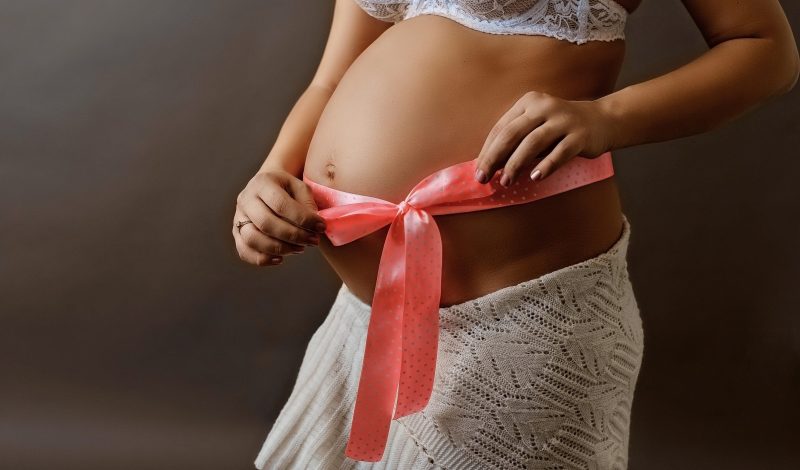Breast Cancer and Your Fertility
How Can You Get Treated and Preserve Your Fertility?
A diagnosis of breast cancer is shocking to a woman, and even more so to women in their child bearing years. Breast cancer is rare in younger women, but it does happen. In the U.S., about 9% of all new cases of breast cancer are diagnosed in women under the age of 45, according to the Centers for Disease Control and Prevention (CDC).
 Your major concern is to save your life, and it’s hard to think about anything else. But you may also be worried about whether breast cancer treatment will affect your ability to have a baby in the future. There are actions you can take before cancer treatment for fertility preservation. Also, a recent study has suggested a way to limit the damage done by chemotherapy for certain types of breast cancer.
Your major concern is to save your life, and it’s hard to think about anything else. But you may also be worried about whether breast cancer treatment will affect your ability to have a baby in the future. There are actions you can take before cancer treatment for fertility preservation. Also, a recent study has suggested a way to limit the damage done by chemotherapy for certain types of breast cancer.
Chemotherapy for Breast Cancer
Breast cancers in younger women are more likely to be hereditary, faster-growing, and found at a later stage, often making them more aggressive and difficult to treat, according to the CDC. Chemotherapy may cause your periods to stop and can damage the ovaries. Most women go into
premature menopause during chemotherapy. In younger women, their periods may return after six months or more. Women over 40 are more likely to go into permanent menopause. Chemotherapy also tends to bring menopause on earlier, even for younger women, so the window for having a family may be shortened.
Certain combinations of chemotherapy drugs cause more damage to the ovaries than others do. Your oncologist’s first mission is to eliminate your cancer and help you survive for many years. What she or he prescribes will depend on the type of breast cancer you have, what stage it is, how fast it is growing, and whether it is hormone-receptor negative or positive. You can talk to your doctor about your concerns for your fertility before treatment starts, and you can work together to protect your fertility.
Fertility Preservation
Meeting with a fertility specialist before your treatment starts will give you the widest range of options. If your cancer treatment can be delayed and you have a male partner or are willing to use a sperm donor, you can have IVF treatment. In an IVF cycle, your ovaries are stimulated to produce multiple eggs. The eggs are fertilized in a lab, and the embryos which develop would be frozen, for transfer later when you are well and cancer-free.
Women who don’t have a partner or don’t want to use a sperm donor can have oocyte cryopreservation or egg freezing. Like in an IVF cycle, your ovaries are stimulated so they produce a number of eggs. These eggs are then frozen for later use in IVF cycles. In recent years the technology has improved, so the success rate of IVF with frozen eggs which are thawed and fertilized in the lab is nearly as good as IVF with frozen embryos. A reproductive endocrinologist (fertility specialist) can help you determine your options and will explain the procedures and the costs involved. In both cases, you will have to have IVF treatment in the future to use the frozen embryos or the eggs. Most insurance plans don’t cover the cost of treatment, but there are ways to finance treatment and make it more affordable.
If you have hormone-receptor negative breast cancer, a recent study found that young women with breast cancer were able to better preserve their fertility during cancer treatments by using hormone-blocking drug injections that put them into temporary menopause. The Prevention of Early Menopause Study (POEMS), a clinical trial sponsored by NCI, found that women in the study who received goserelin, a hormone blocker, were one third as likely to experience ovarian failure and twice as likely to have a normal pregnancy after cancer treatment, compared to the women who didn’t receive the drug during cancer treatment. Talk to your oncologist about your fertility, and find out which options are best for you.
 Your major concern is to save your life, and it’s hard to think about anything else. But you may also be worried about whether breast cancer treatment will affect your ability to have a baby in the future. There are actions you can take before cancer treatment for fertility preservation. Also, a recent study has suggested a way to limit the damage done by chemotherapy for certain types of breast cancer.
Your major concern is to save your life, and it’s hard to think about anything else. But you may also be worried about whether breast cancer treatment will affect your ability to have a baby in the future. There are actions you can take before cancer treatment for fertility preservation. Also, a recent study has suggested a way to limit the damage done by chemotherapy for certain types of breast cancer.



